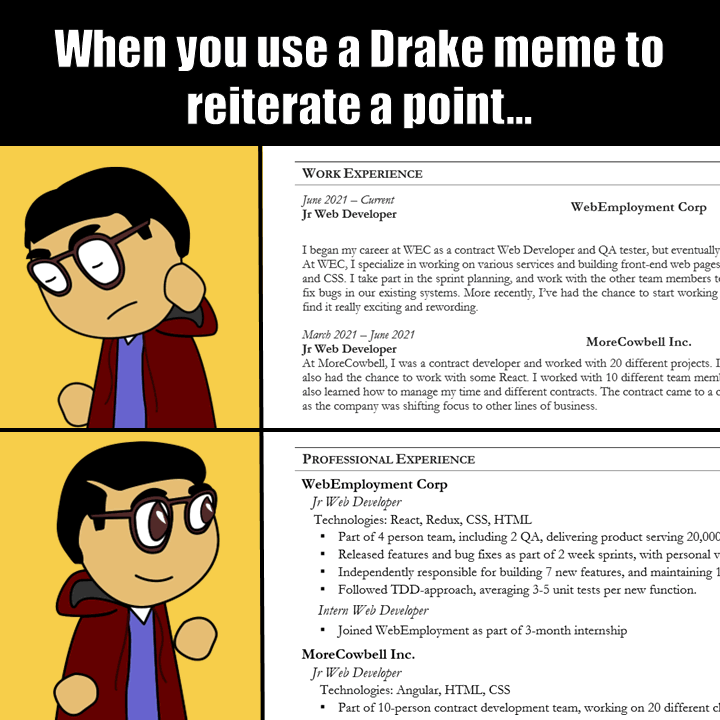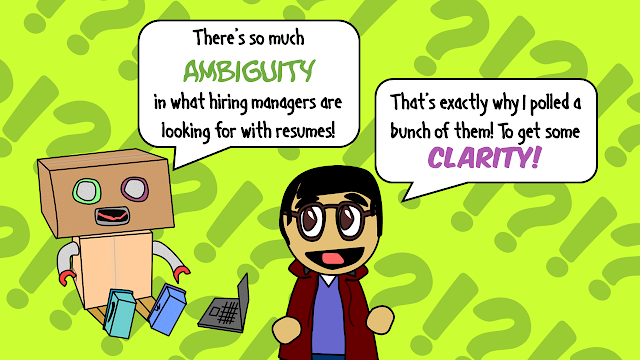Radiate Intent
As a follow-up to my post about aphorisms, I think I've found my new maxim for 2024 - inspired by Elizabeth Ayer:
Don't ask forgiveness, radiate intent.
A play on the 'don't ask for permission, ask for forgiveness,' phrase that gets used a lot. I landed across this phrase while watching a video about effective backlog prioritization, and it lead me to Elizabeth's article on Medium which does a great job breaking down why radiating intent is so important.
In a nutshell, announce, telegraph, share, inform others of what you are intending to do. This gives others the opportunity to intervene, or at the very least be informed. It builds trust with them while building your own confidence. It also gets away from the troubling phrasing of 'permission.'
Even though I've taken this approach naturally for some time, I think it's valuable to ground myself to this maxim. It makes it all the more intentional (don't pardon the pun, but relish it).
It also helps me combat a conflicting desire I often have - that of the "grand reveal." That desire to keep what I'm doing under strict lock-down, work on it in secret, and then only when it's truly ready to I reveal the results and bask in the surprised glow of my audience. The truth is - this has its time and place, and better for the nice-to-have/over-deliver/delighters as opposed to core functions.
Interestingly, the concept of 'intent' has been on the forefront of my thoughts prior to reading Elizabeth's article. I'd recently read a paper on how to build 'Intent Specs' for software. When we talk about our users & our stakeholders we use terms like objectives, goals, & jobs-to-be-done but, prior to this paper, I don't think I'd ever come across the use of 'intent'.
I like intent in these cases because it feels more personal, more connected to the individual. It's connected to purpose. Of course, this may all be semantics, but what I like about intent is it doesn't presume an approach, nor does it suggest success. It just grasps at the heart of why the person is looking to do something to begin with.
One of the challenges of building the right solution is making sure you're solving the right problem - and words like objective or goal feel too rooted in the problem space. As Henry Ford said: "If I'd asked customers what they wanted, they would have told me, 'A faster horse!'"
This is the objectives/goals way of thinking - that is, to get to the destination faster. But when reframing the problem around their intent, you could say the customer's purpose is to waste less time. Better yet, their intent may be to spend more time with their family.
This leads you to all kinds of possible solutions - from faster horses & building cars, to mass-transportation, suburban/urban layouts, work-from-home, and more. To quote the paper:
Not only do search strategies vary among individuals for the same problem, but a person may vary his or her strategy dynamically during a problem-solving activity: Effective problem solvers change strategies frequently to circumvent local difficulties encountered along the solution path and to respond to new information that changes the objectives and subgoals or the mental workload needed to achieve a particular subgoal. It appears, therefore, that to allow for multiple users and for effective problem solving (including shifting among strategies), specifications should support all possible strategies that may be needed for a task to allow for multiple users of the representation, for shedding mental workload by shifting strategies during problem solving, and for different cognitive and problem-solving styles.
So, all that is to say: with your permission, I'd like to make 2024 about intent. Er... I mean... I intend to make 2024 about intent.





